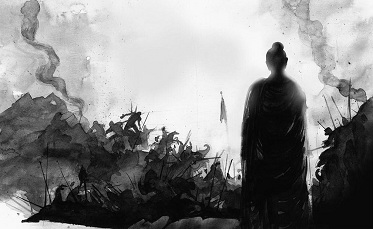The Real War Heroes

From the Book RADICAL PEACE: People Refusing War by William T. Hathaway. Published by Trine Day 2010.
Better to go down resisting. Better yet to change it while we still can.
"That must be them." Petra took one hand off the steering wheel and pointed to a group of soldiers about two hundred meters away, standing along our road next to a high chainlink fence topped with barbed wire.
Traffic was light, but Petra said, "I don't want any other cars around." She pulled off the road and stopped. "Get everything ready."
I crawled into the back of the car and opened the rear hatch to give access to the interior and to raise the license plate out of sight. We wore caps and sunglasses to be less recognizable.
When the road was empty, she started driving again. We approached the soldiers, who were walking in the grass, stopping often to pick things off the ground and put them in sacks they were dragging.
"There's Rick." Petra slowed and drove along the shoulder. A man turned his head at the sound of our car crunching gravel, dropped his bag, and ran towards us with a slight limp. While the guards shouted for him to stop, I thrust my arm out, grabbed Rick's hand, and pulled. He lunged forward and dived into the open hatch, banging his leg on the edge. A guard was swearing and groping at the holster on his belt. Rick scrambled in, knocking off his glasses, and Petra floored the gas. Our spinning tires hurled gravel behind us then squealed over the pavement. The car slid halfway across the road before Petra brought it under control, and we sped away.

























